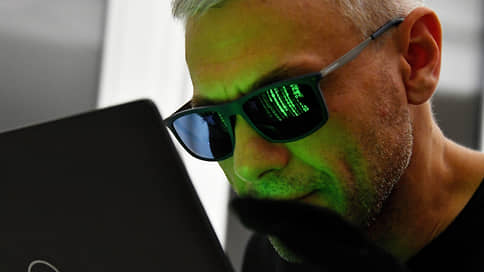State-owned companies and departments that form 40% of the Internet security market have reduced the volume of purchases
[ad_1]

State companies and departments that form 40% of the Internet security market have reduced the volume of purchases in this area. According to the results of the first half of the year, the volume of tender purchases decreased by 15% in monetary terms and by 4% in physical terms compared to the same period last year. At some sites, the amount of contracts concluded is growing. Market participants and experts explain this dynamics by the fact that most customers continue to purchase the remaining foreign solutions that have fallen in price, which cannot be said about Russian products.
The fact that government customers are reducing investments in cybersecurity tools is evidenced by the data of Informzashita, which analyzed the purchases of departments (according to FZ-44) and state-owned companies (according to FZ-223) at three main tender sites from January to July 1, 2023 relative to the same period of last year. First of all, we are talking about information security tools, services for monitoring the security of information systems, encryption of information that does not contain state secrets. The volume of purchases, according to analysts, fell by 15%, to 35.4 billion rubles, with a decrease in the number of tenders held by slightly more than 4%, to 9.1 thousand. it was necessary to switch from Western products to Russian ones as soon as possible. Now, the reduction in the cost of tenders is affected by the reduction in prices for the remaining Western solutions, which used to be always more expensive, ”comment in Informzashita. Experts do not note price reductions for Russian solutions.
The results of individual sites do not fully coincide with the noted trend. Thus, according to Roseltorg, a total of 1.7 thousand tenders were held in six months, their number remained practically unchanged, despite the fact that the volume of purchases amounted to 4.5 billion rubles, which is 13% more than in the first half of 2022 of the year.
According to the forecast of the Center for Strategic Research, the cybersecurity market in Russia by 2027 will amount to 559 billion rubles. with an average annual growth of 24%. At the end of 2022, the market increased by only 4%, to 193.3 billion rubles. (see “Kommersant” dated July 31).
Public procurement now accounts for about 40% of the cybersecurity market in monetary terms, Rustem Khairetdinov, deputy director general of Garda Group, estimates. In profile IT companies, they confirm the decline in demand for cybersecurity solutions from government agencies. A Kommersant source in the IT industry says: “The end of the year may change something, but so far there is no expected market growth.” Usually more than 50% of all purchases are made in the fourth quarter, remind the Ministry of Digital Development. Last year, many pushed back their purchases, but “we expect a classic picture this year,” the ministry said.
The information security market is in a situation of replacing the entire material base from foreign to Russian, this cannot but affect the dynamics of demand and prices. For some classes of foreign solutions, there are no good alternatives in terms of functionality and reliability, admits Polina Melnik, head of the K2Tech customer service group. “We are seeing an increase in demand for testing new solutions, but companies are still afraid to implement them,” she says. “The current reality of information security encourages us, as well as the Russian sector as a whole, to switch to using exclusively Russian IT and information security solutions. We are aware that the further use of foreign software, and even more so information protection tools, is impossible, ”the Russian Post noted. The company stressed that they are now looking for and implementing new domestic tools to improve the security of corporate data and IT systems.
Rostec, Rosatom and Russian Railways did not respond to Kommersant’s request.
[ad_2]
Source link





